Companion planting is one of the best gardening hacks you can use in your garden to reduce pest pressure, increase yields, and lower disease incidents. One of the best (mostly) universal companion plants around? Onions!
Let us show you all the ways onions can help other plants in your garden, plus all the plants you can plant with onions to help you get a better crop each year. Let’s get planting!
Table of Contents
What is companion planting?
Companion planting is the gardening practice of interplanting vegetables, herbs, and fruits so that the plants can benefit from each other. Rather than planting a bed or row that is entirely tomatoes or entirely onions, for example, you mix and match plants within that bed.
There are many ways that different plants can benefit each other—it may involve deterring pests, enhancing growth, boosting vegetable production, attracting pollinators, or preventing disease.
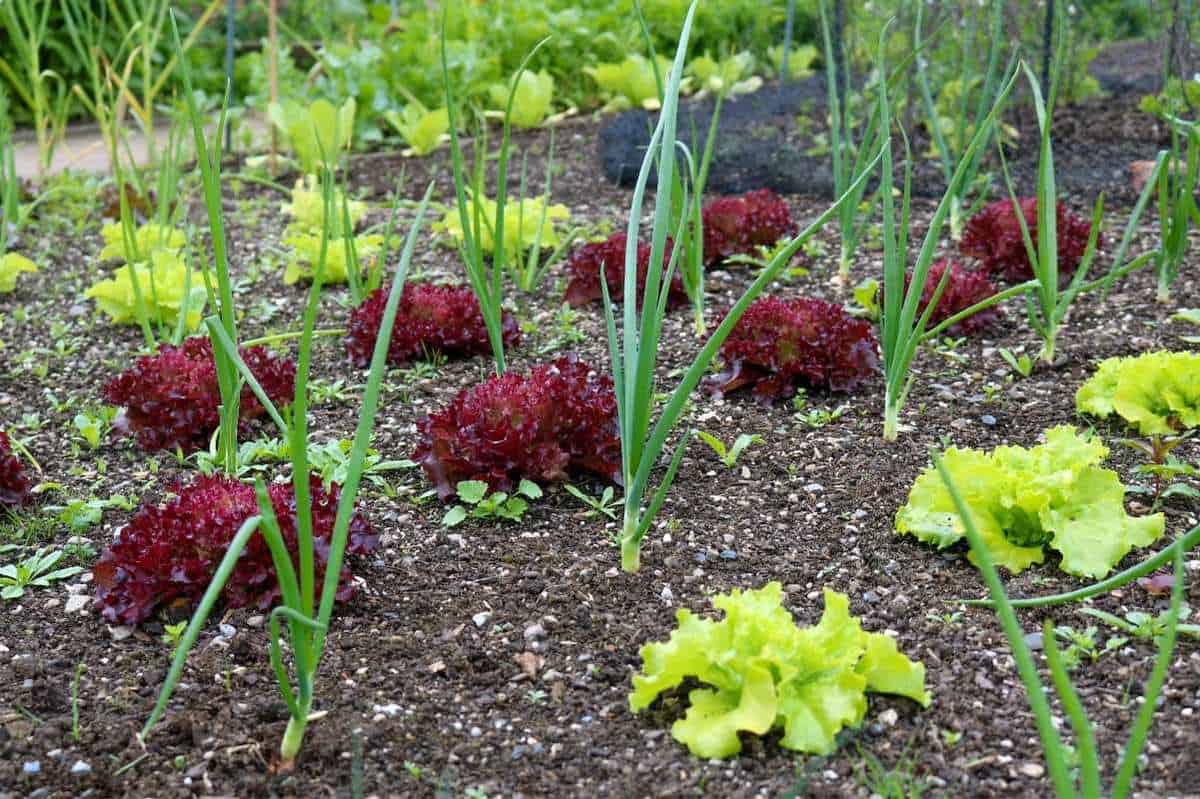
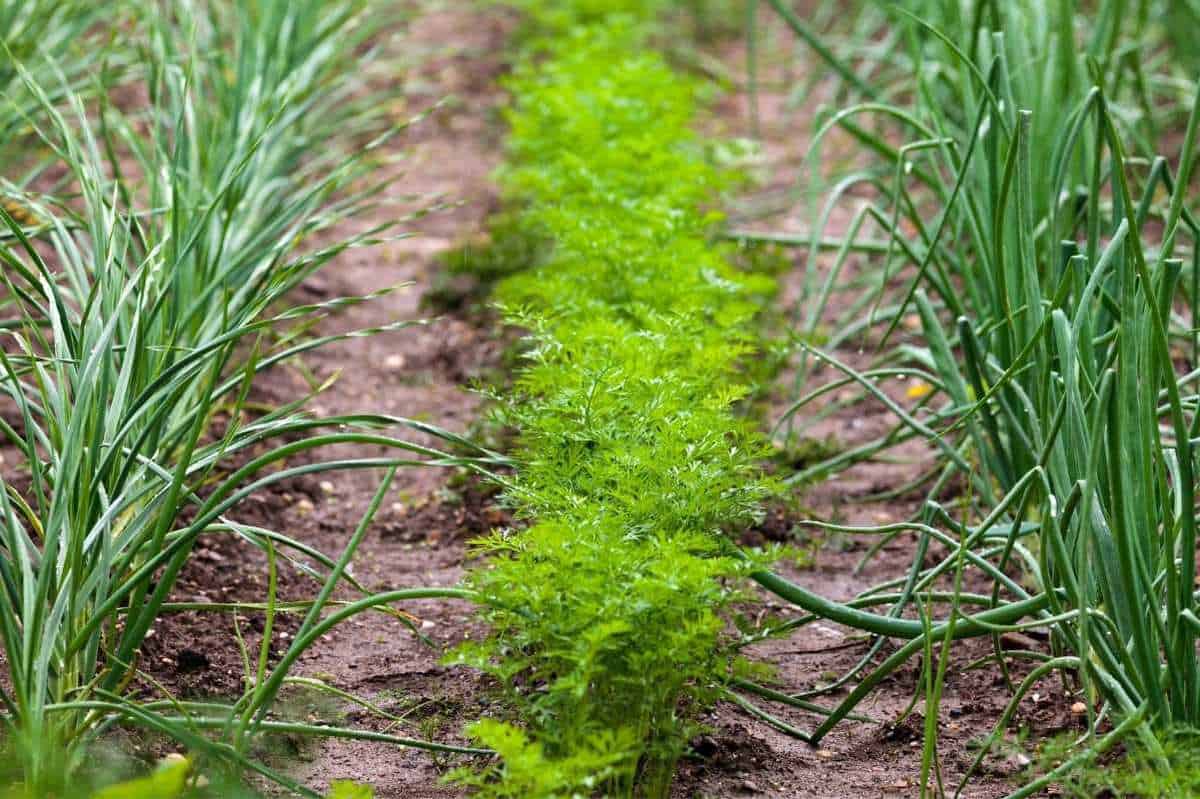
Why should I try companion planting?
Companion planting is one of the EASIEST organic, sustainable gardening practices. It can reduce pests, improve flavor, and increase production—so why not try it? All you have to do is put certain plants near each other in the garden and let the magic happen.
What are the BEST onion companion plants?
In general, onions are an excellent companion plant for almost every spot in the garden. Their strong scent works as an excellent pest repellant. Interplanted onions can help keep many pests at bay because the strong odor hides the scent of other plants that insects might want to devour. We’ve had good results using onions to deter aphids, Japanese beetles, flea beetles, rabbits, and other pests. Here are the BEST onion companion plants.
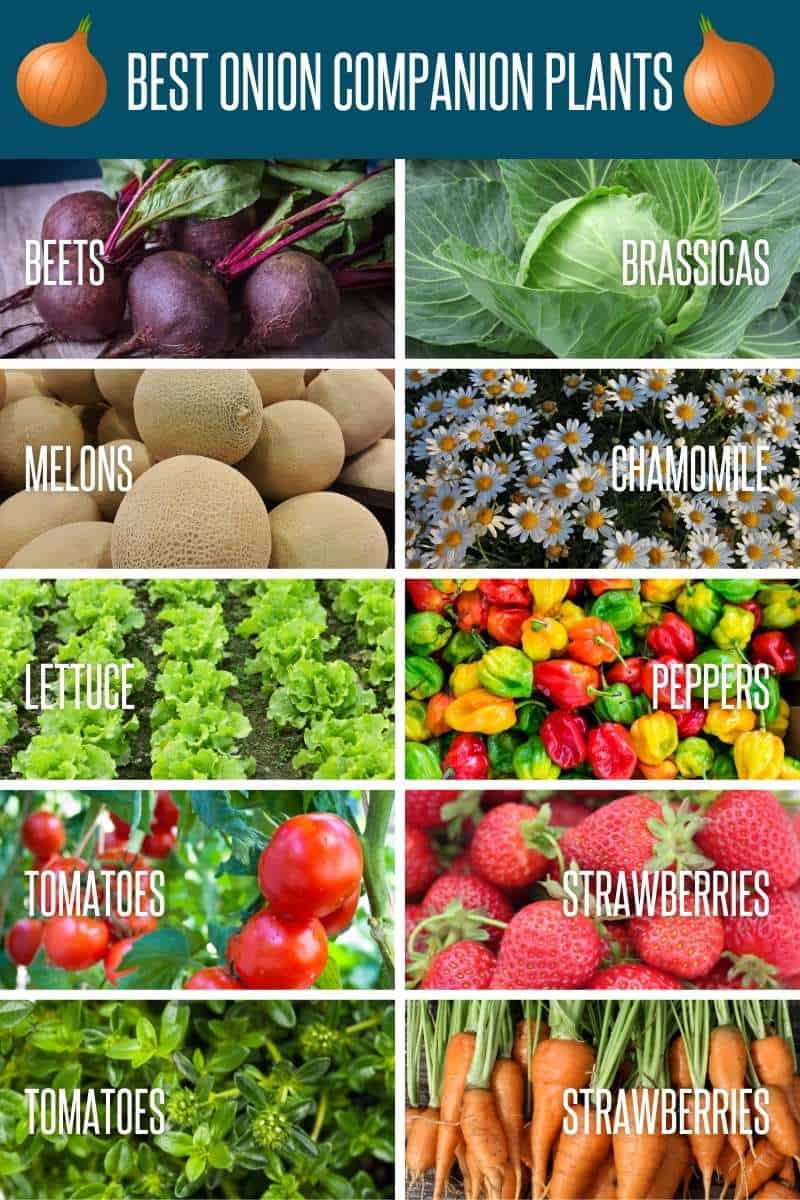
- Beets. Thanks to onions, beets are protected from aphids, flea beetles, and munching rabbits and other small animals. And beets can help protect onions from thrips.
- Broccoli, cabbage, cauliflower, kohlrabi, kale, and other brassicas. Onions repel cabbage loopers, cabbage worms, flea beetles, and cabbage maggots, all of which like to munch on cabbage family members such as broccoli, cauliflower, and Brussels sprouts.
- Cantaloupe, honeydew, watermelon, and other melons. Onion plants can repel pests that attack cantaloupe plants and other melons.
- Chamomile. Onion and chamomile are an excellent combo, especially if you live in a humid climate. The natural anti-fungal properties of chamomile help to reduce fungal diseases in onions. Chamomile attracts beneficial insects that can help control bugs that might munch on onions. This is true for many other flowers and herbs such as marigolds, borage, dill, and mint (which is invasive, so keep it in a pot).
- Lettuce. Not only do onions repel pests that may want to munch on your lettuce, but they are also an effective use of space—lettuce has relatively shallow roots, leaving plenty of room for onions to bulb up underground.
- Peppers. Alliums such as onions and garlic can deter the aphids that like to feed on pepper plants.
- Tomatoes. The strong scent of onions can make the scent of tomatoes undetectable to insects.
- Strawberries. Onions deter aphids, which can wreak havoc on a strawberry crop.
- Summer savory. This herb isn’t planted in many gardens, but if you enjoy sweeter onions, you should plant it in yours! It not only improves the flavor of onion, but also helps to encourage strong growth, and the flowers help to attract beneficial insects.
- Carrots. Onions will help repel the carrot fly from your carrot crop.
Growfully Protip
Since onions are so slow-growing, you can also use fast-growing radishes to help you mark your row—the radishes will be ready to harvest about the time when your onions are big enough to mark the row on their own.
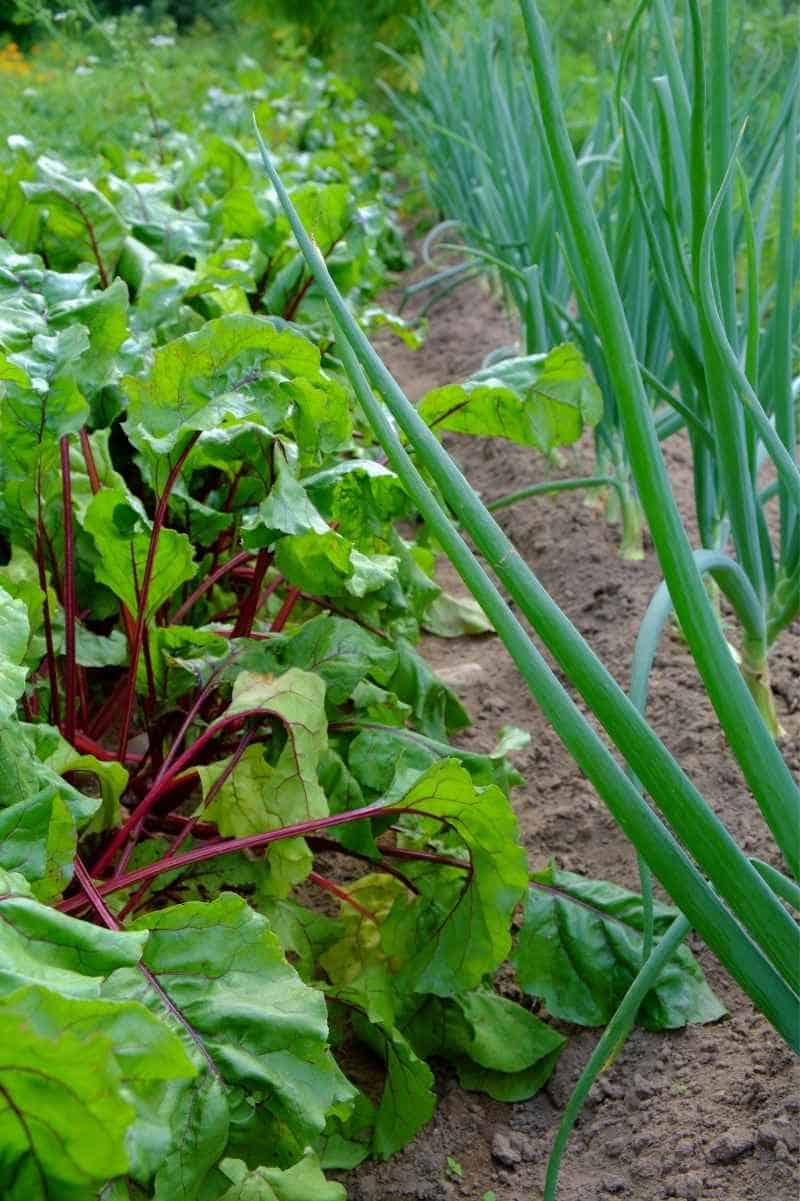
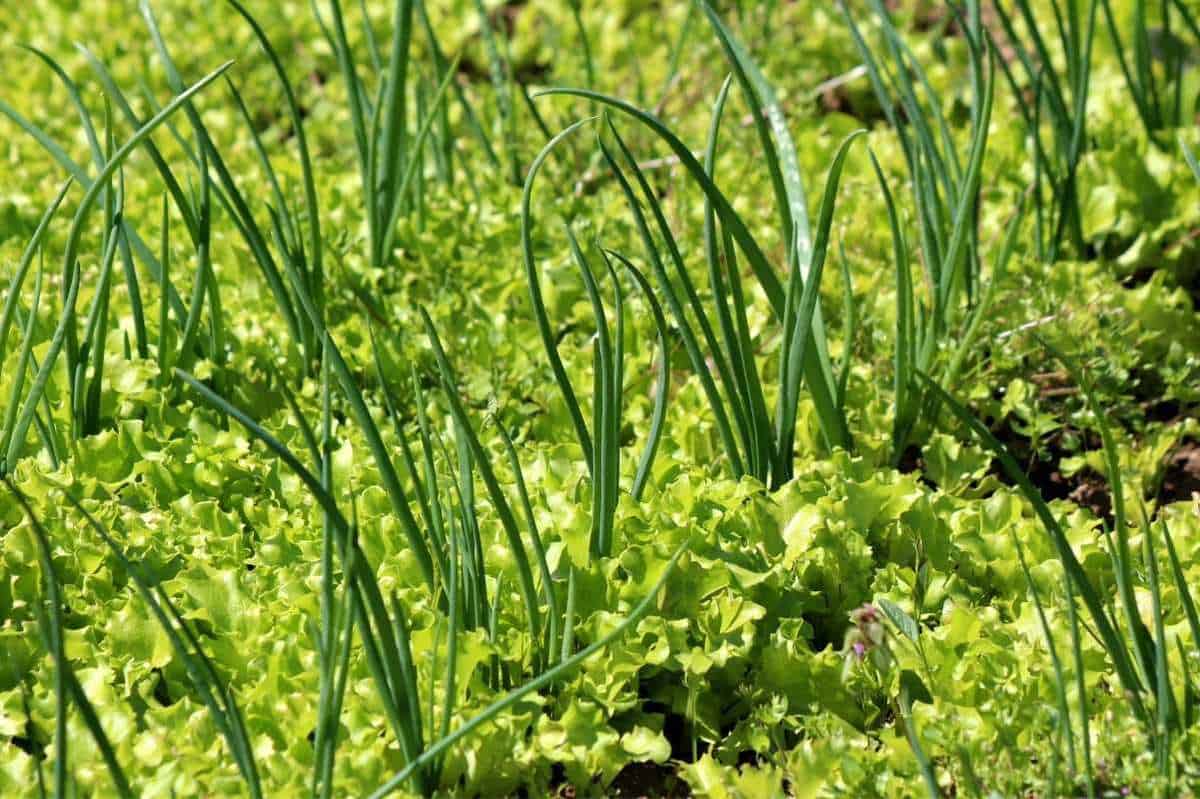
What are other good onion companion plants?
Onions and other allium family members have strong scents that can repel pests, particularly those who rely on their sense of smell to find their next snack. These include aphids, flea beetles, mosquitoes, spider mites, slugs, and more.
With just a few exceptions (read about those below), you can plant onions, garlic, scallions, and shallots throughout the garden, and they will be a great friend for your plants.
Growfully Protip
If your onions didn’t quite do the trick, you can also use our all-natural pest repellant spray on small insect infestations.
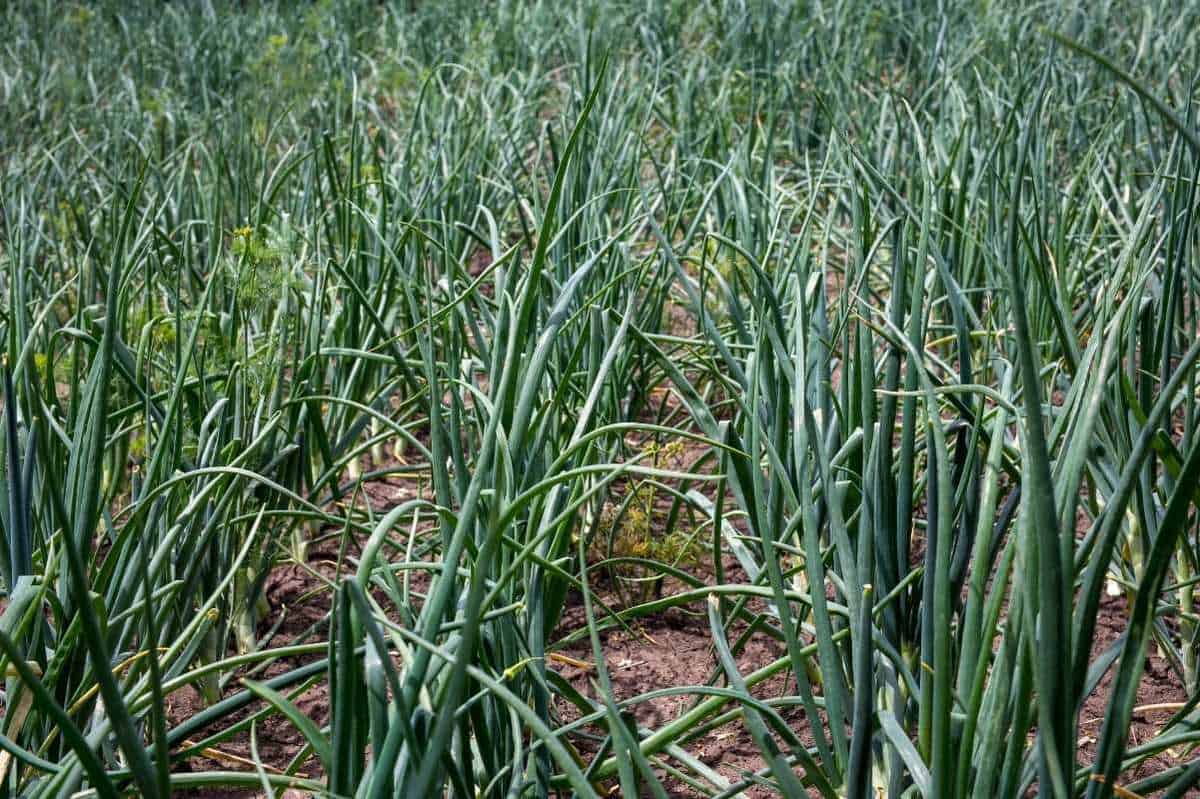
What should I NOT plant with onions?
Onions are mostly friendly with everyone in the garden, with a few notable examples. Do not plant onions with:
- Beans (both pole beans and bush beans), peas, and other legumes. Onions can kill the helpful bacteria that grows on bean, pea, and other legume roots, stunting the growth. Since these legume plants fix nitrogen to the soil and onions are heavy nitrogen feeders, onions are a great option to plant after pulling your legume plants.
- Asparagus. Companion planting onions and asparagus creates competition for the same nutrients—meaning you’ll stunt the growth of one or both of your crops.
- Sage. Sage tends to enjoy different growing conditions from onions, which can mean it’s tricky to get the growing conditions right for both plants if planted together.
- Other onion family plants (garlic, leeks, shallots, chives, scallions). Many of the pests that will attack one onion-family crop will easily jump or fly to a close-by onion family crop, so give them some space.

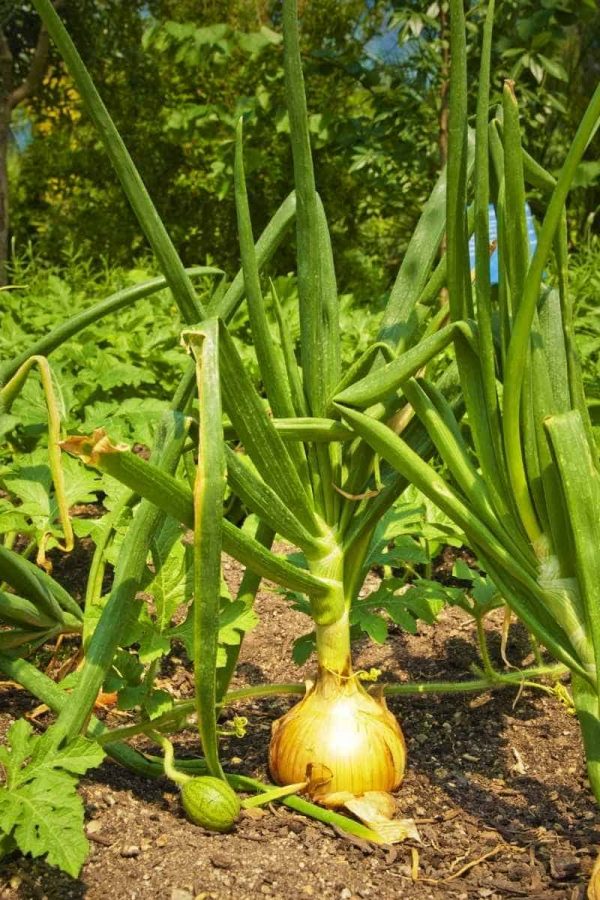
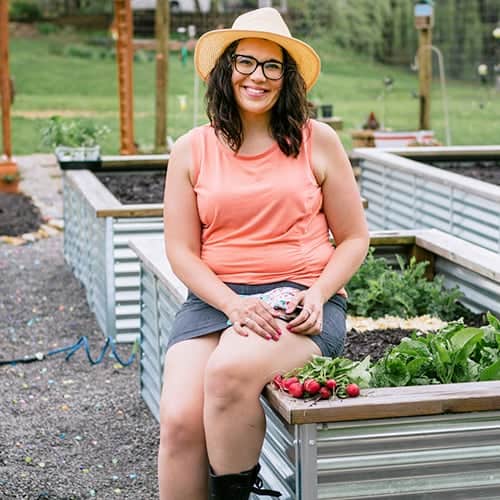
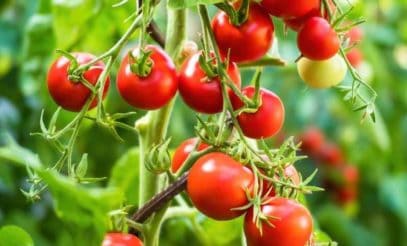

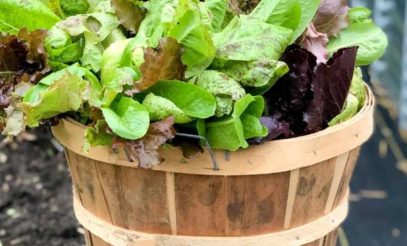
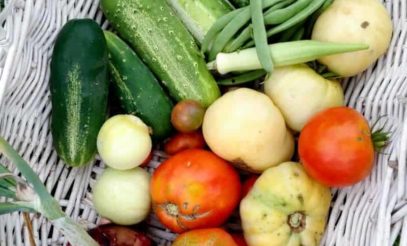
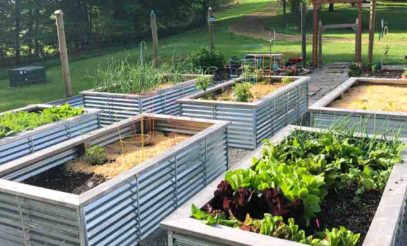
Can onions grow next to catnip or colorful flowers
Catnip is in the mint family, so it should be fine with onions. For the flowers, it would depend on what kind you are trying to grow.